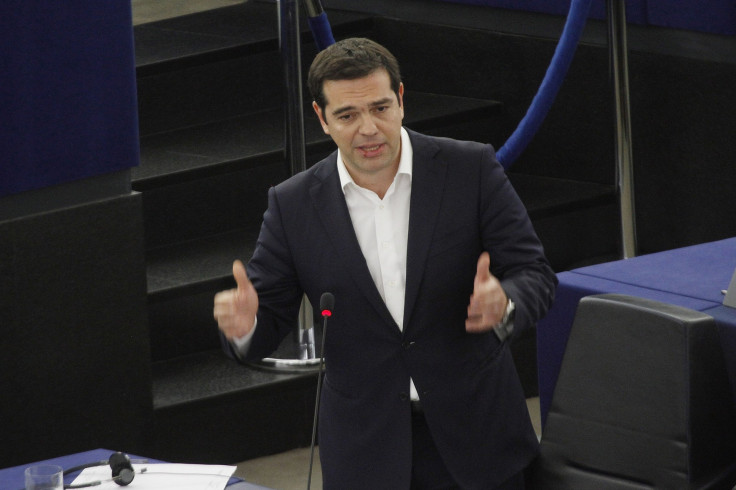Greek Conservative Opposition Gives Up Bid To Form Government

ATHENS (Reuters) - Greece's conservative opposition leader acknowledged on Monday that he could not form a government and lambasted outgoing Prime Minister Alexis Tsipras for dragging the country back to elections after just seven months in power.
After a fruitless three-day search for a coalition partner, New Democracy leader Vangelis Meimarakishanded back a mandate to form a government to the country's president.
The baton now passes to the third largest bloc in parliament, the far-left Popular Unity party that broke away from Tsipras's leftist Syriza party just last week with 25 lawmakers in the 300-seat chamber. The president's office said party leader Panagiotis Lafazanis would be formally given the mandate at a meeting at 1 p.m. (0600 EDT).
The anti-bailout party is expected to be equally unsuccessful in putting together a coalition in the three days allotted to it, after which a caretaker government will be installed to arrange elections.
Tsipras's office has attacked the decision of opposition parties to take their time and exhaust their constitutional mandate to form a government, saying it would just delay the inevitable elections.
But the conservative Meimarakis - whose party is not expected to perform strongly if elections are held now - accused Tsipras of taking Greece down a "destructive path" by holding polls at a time when its future in the euro zone remains far from fully secure.
"I believe that even now he can realize (it) and meet with us and try to come to some understanding to avoid such a course. He has acknowledged in parliament that the Grexit ghost is still hovering over the country," Meimarakis told the president.
"He thinks he can be the first party in the next parliament - I'm wondering with whom he wants to do this, since he doesn't want to see any of us again."
Days after clinching an 86 billion euro ($99 billion) bailout from euro zone and International Monetary Fund, Tsipras resigned to pave the way for elections that could come as early as Sept. 20.
Snap polls were widely expected in the autumn but Tsipras was forced to move quickly after nearly a third of his lawmakers defied him in parliament to vote against the bailout deal, leaving him reliant on opposition support.
Considered by many Greeks as an anti-bailout champion who valiantly fought against German-led austerity before being beaten into submission, Tsipras remains highly popular and is widely expected to return to power when elections are held.
His Syriza party has said it is aiming for an absolute majority but analysts expect him to fall short of that, forcing him to hunt for a coalition partner again.
The centrist To Potami party - a pro-euro party that has supported Tsipras in bailout votes in parliament - and the right-wing Independent Greeks party, currently Tsipras's ally, are both considered potential coalition candidates.
© Copyright Thomson Reuters 2024. All rights reserved.




















